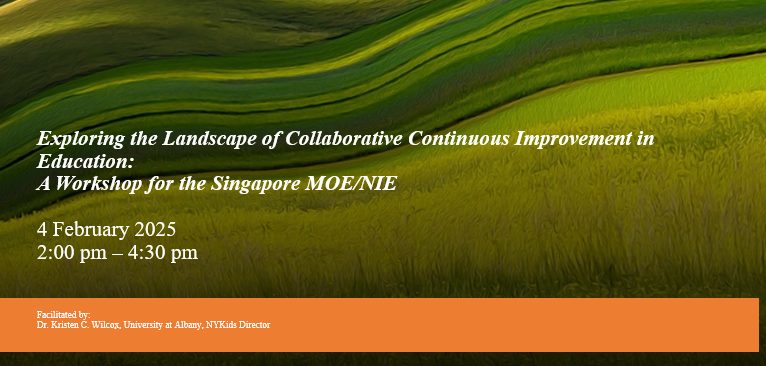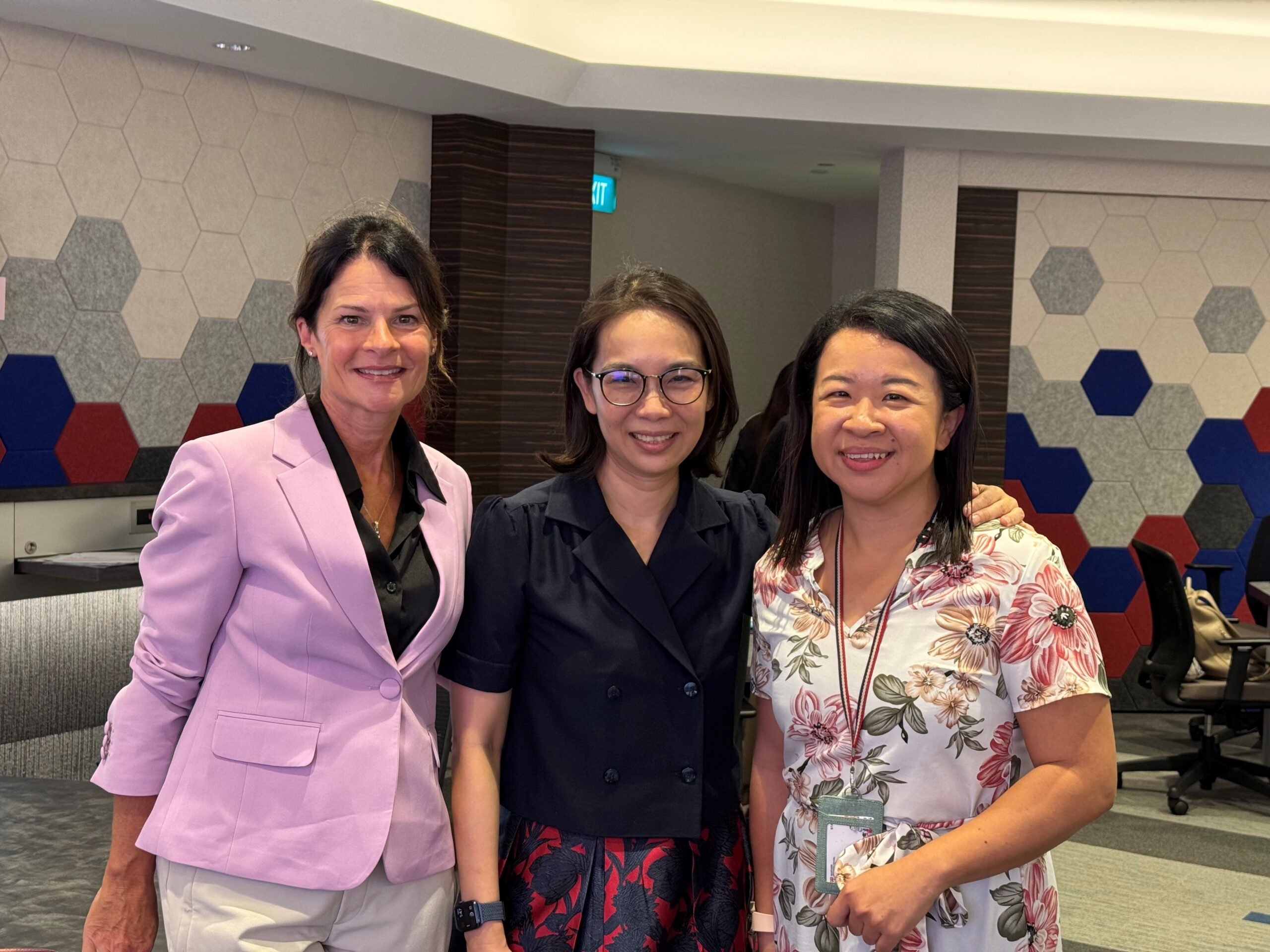Highlighting NYKids Invited Talks in Singapore
By Kristen C. Wilcox
In the context of growing interest in the generation and use of improvement research in education (IRE) and collaborative continuous improvement in education (CCIE) strategies in addressing improvement imperatives across the P-20 pipeline, NYKids is honored to be invited by the Singapore National Institute of Education (NIE) and Ministry of Education to share our approach to bridging the research, policy, and practice divide. This opportunity to learn with and from educational researchers, policymakers, and practicing professionals lines up nicely to the University at Albany’s strategic plan and institutional priorities especially regarding internationalization, diversity and inclusion, and engagement and service. In this blog I share highlights from the full schedule of workshops and talks I will offer while in Singapore February 4th– 8th.
Key Problems in Bridging the Research, Policy, and Practice Divide
One key problem in bridging the research, policy, and practice divide is how to bridge gaps in IRE knowledge and another is spreading expertise in CCIE strategies in P12 schools, institutes of higher education (IHE), and other service-oriented organizations.
A second problem to address is the tension between the metrics and processes used to assess effectiveness in traditional accountability systems and the metrics and processes used to inform both practical and systemic improvements in and across educational institutions.
As policymakers seek to promote and use IRE in their accountability system redesign efforts and spread CCIE expertise across diverse stakeholder groups, boundary-spanning improvement knowledge generators, and improvement capacity builders, are, arguably, necessary. So too are the infrastructures to support them. NYKids offers one model, framework, and related tools to do this.
NYKids Invited Talks in Singapore: Highlighting Four Strategies to Increasing Research Impact
 In the Singapore context there has been increasing interest in improving research impact. Some Singaporean researchers have investigated teachers’ perceptions of research in practice and constraints, and possibilities to increase teachers’ use of research in practice. From this research we glean that teachers in Singapore generally do not perceive research to be of practical use and the educational system has not shifted to the use of CCIE approaches to address this research impact conundrum. This topic has been extensively researched in the United States and many of these same issues are prevalent in the U.S. as well.
In the Singapore context there has been increasing interest in improving research impact. Some Singaporean researchers have investigated teachers’ perceptions of research in practice and constraints, and possibilities to increase teachers’ use of research in practice. From this research we glean that teachers in Singapore generally do not perceive research to be of practical use and the educational system has not shifted to the use of CCIE approaches to address this research impact conundrum. This topic has been extensively researched in the United States and many of these same issues are prevalent in the U.S. as well.
One way NYKids addresses the research impact issue is by structuring improvement work with P-12 school partners by rooting our work in CCIE principles. My workshop in Singapore, followed by a roundtable and discussions with NIE and MOE representatives, will start with this important question: What does CCIE entail?
- Collaboration: Educators work together as a team, sharing expertise, perspectives, and resources.
- Data-Driven: Decisions are based on evidence and data analysis.
- Focus on Student (or end-user) Learning or Some Other Outcome Measure: The ultimate goal is to improve outcomes for end-users of the system.
- Iterative Process: The process is ongoing, with continuous cycles of planning, implementation, evaluation, and reflection.
- Shared Leadership: Leadership is distributed among educators, empowering them to take ownership of the improvement process.
- Collaborative Continuous Improvement fosters a culture of learning and innovation, where educators are committed to ongoing growth and improvement for the benefit of their students.

In our NYKids partnership work we center discussions about improvement, especially issues of educational equity, on our NYKids positive outlier study findings, which are practical and highlight the voices of peer educators.
Another way NYKids addresses the research impact problem is by formatting our research-based tools in ways that anchor research into strategic planning and measurement systems. We do this through COMPASS-AIM (standing for Compare practices, policies, and processes with positive outliers; Assess will, capacity, and priorities; Select research-based levers to improvement; Set SMART goals, and from there Action plan, Implement the plan, and Monitor the outcomes). The COMPASS-AIM tool itself – assists partners in diving down to the “what to do on Monday morning” questions. This is supportive of practicing professionals’ use of the research in practice.
Finally, at NYKids we have found that the inviting district and school leaders, teachers and other support staff into continuous improvement teams using CCIE strategies has the potential to bleed into what Professional Learning Communities (PLCs) and Communities of Practice (COPs) focus on and how they do their work – in the end supporting systemic improvements and alignments across units and divisions.
In sum, four strategies to increasing research impact we have discovered at NYKids are:
- root partnership work in CCIE principles
- center discussion on positive outlier study findings
- anchor research into strategic planning and measurement systems
- invite diverse array of professionals in the school/university/other organization into continuous improvement teams
Stay tuned for upcoming blogs highlighting lessons learned from our Singaporean hosts and the next international presentation at the International Congress of School Effectiveness and Improvement in Melbourne, Australia.
